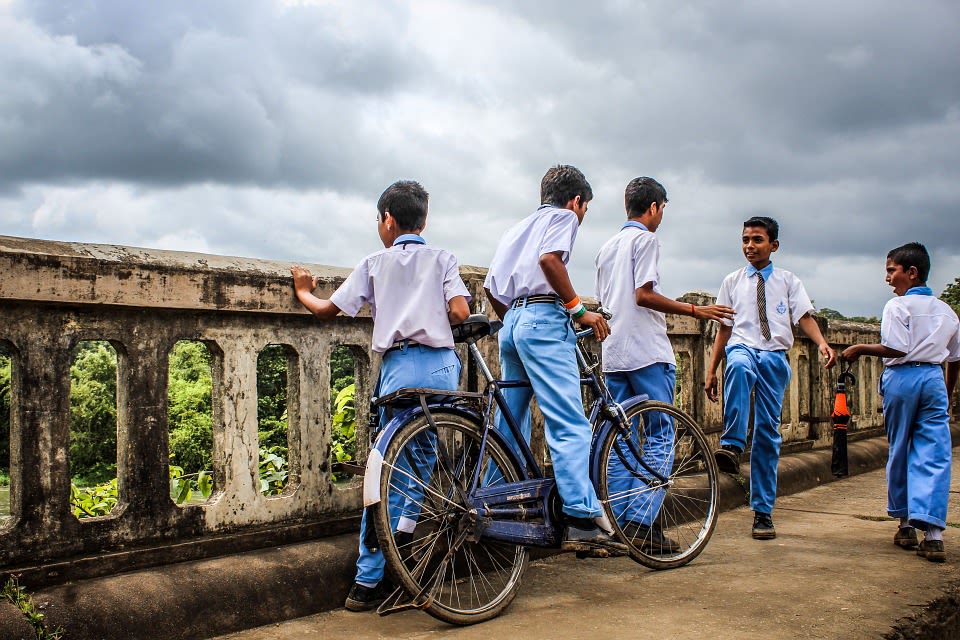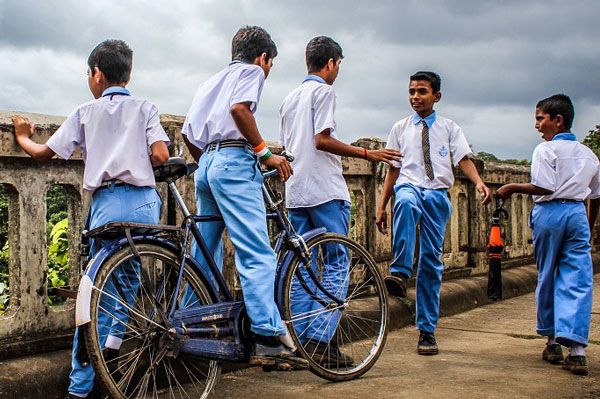

Private education in lower-income countries is having a limited impact on learning

A rapid increase in the number of private schools in lower-income parts of the world is having surprisingly little effect – and in certain cases perhaps no real impact at all – on learning, researchers have found.
The study examined data from more than 560,000 children in India, Pakistan, Kenya and Uganda. It found that on average, at least half of the learning gains that privately-educated pupils make over their state-school peers reflects their more advantaged backgrounds, rather the quality of their school.
The researchers calculated that the real difference many private schools make to pupils’ attainment is just a few percentage points – and in some cases may not exist at all. The findings are reported in the journal Comparative Education Review.
The number of private schools across the global South has risen steeply over the last 20 years, as companies and local entrepreneurs have taken advantage of gaps in poorly-performing state education systems. According to the World Bank, between 2000 and 2017, the share of primary school pupils at private institutions in low and middle-income countries rose from 9.9% to 17.5%. The true figure is likely to be higher, as many private schools are never legally registered.
"In some lower-income contexts there may even be no ‘true’ private school advantage at all. This obviously raises questions about their value to society."
Rob Gruijters
Dr Rob Gruijters, from the Research for Equitable Access and Learning (REAL) Centre, Faculty of Education, University of Cambridge, said: “The evidence suggests that some of these schools are not really living up to their promise of providing a much-improved education.”
“While their impact on learning is definitely no greater than we report, it could be even smaller, because there are some factors we could not take into account, such as the peer effects which occur when more-advantaged children are clustered together in a private school. In some lower-income contexts there may even be no ‘true’ private school advantage at all. This obviously raises questions about their value to society.”
How far private education has benefited pupils in the global South is widely contested. Unlike elite private institutions in North America and the UK, many such schools are poorly resourced and costs are deliberately kept low.
Their supporters point out that pupils typically emerge with better test scores than their state-educated peers. Critics, however, suggest that this is partly because privately-educated children tend to enjoy other advantages, such as more educational resources at home, or better parental support. The impact of these background factors is notoriously difficult to measure.

The new study neatly addressed this problem by comparing the learning outcomes of primary school-age children from the same household who attended different types of school. The researchers used data collected by the People’s Action for Learning (PAL) Network between 2013 and 2018. This measured educational attainment using standardised literacy and numeracy test scores.
Across all four countries (India, Pakistan, Kenya, and Uganda), the survey covered more than 562,800 children. There were 37,000 cases where researchers could compare children from the same household, one of whom was state-educated, and the other privately-educated. The study compared the average difference between these children’s attainment measures with the average difference between state- and privately-educated pupils overall. It also looked at whether the resulting patterns differed by wealth.
The results show that access to private education in the global South is clearly stratified by wealth, although even some very poor children may go to private schools. In Kenya, for example, children from the wealthiest fifth of the population are 8.2 times more likely to be enrolled in a private school than those from the poorest fifth.
"For many low-income families, the reality may be a choice between seriously underperforming government schools and private alternatives that are not much better."
Pauline Rose
The researchers also found, however, that the difference in achievement between privately- and state-educated pupils fell by half or more, once the advantages of family background were taken into account.
For example, in a test of whether they could read and understand a simple, Grade 2-level story, privately-educated children appeared, at first glance, far more capable than their state-educated peers. Overall, private school pupils were 10 percentage points more likely to pass the test in Pakistan; this rose to 15 percentage points in Uganda, 19 in India, and 22 in Kenya.
The average difference dropped dramatically, however, among children who went to different schools but came from exactly the same background: falling to 7 percentage points in Uganda, 9 in India, 8 in Kenya – and around zero in Pakistan. There were no major differences in the effect of private schooling for poorer or wealthier children.
The paper notes that it is ‘striking’ that family background consistently had this type of effect on test scores in all four countries, despite their very different educational landscapes.
The authors warn that in many countries, the main impact of private schools may therefore be to draw support away from state education, without significantly increasing standards.
Professor Pauline Rose, who co-authored the study, added: “For many low-income families, the reality may be a choice between seriously underperforming government schools and private alternatives that are not much better. The danger is that private education will further entrench inequality without improving overall quality, at the expense of the very poorest children, whose parents cannot afford to pay.”
Main image: antriksh via Pixabay